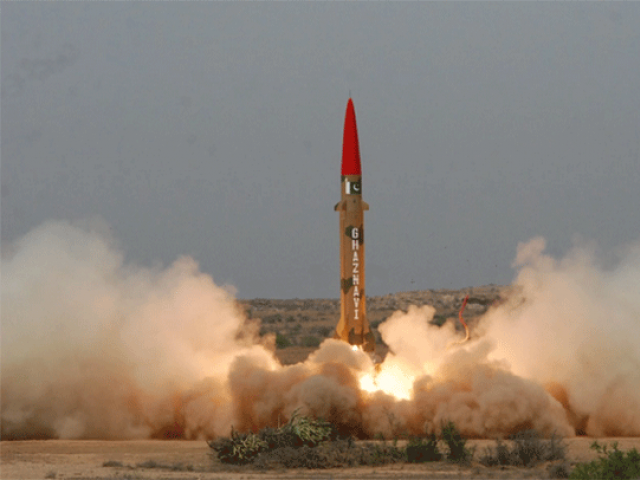
Marshall Islands takes on India, Pakistan with nuclear warning at UN court
The plea was moved in ICJ Registry on April 24, 2014. After due legal process, the court is now conducting hearing first to determine if it has authority to adjudicate the matter.
The United Kingdom is currently the only permanent member of the Security Council recognising the compulsory jurisdiction, but with significant reservations. Overall, 66 of close to 200 countries party to the ICJ Statute accept its compulsory jurisdiction under Article 36(2) with most maintaining strong qualifications to their consent, thus narrowing the court’s authority.
Pakistan and India both are not signatory to any international or regional agreement that prohibits their right to develop nuclear technology for military and defense purposes. Both nations, who are arch enemies, are not signatory to the Nuclear non-Proliferation Treaty. Being a signatory, Iran could not develop nuclear capability beyond the permissible limit and faced stringent UN sanctions for violation of obligations.
Marshall Islands to open nuclear arms battle against Pakistan, India
Though Pakistan does not even have diplomatic relations with the tiny state, it has no hostile designs towards countries in the South Pacific.
In the counter-memorial Pakistan submitted it is stated Marshall Islands “has never suffered any damage caused by Pakistan either directly or indirectly, and by the lack of any formal or informal communication.” Both the South Asian countries don’t have any dispute with Republic of Marshall Islands.
For Pakistanis, the obvious question must be: Why is a tiny country in the South Pacific Ocean threatened by the nuclear weapons programme of countries geographically so far? The answer lies in the suffering of its people resulting from the rash testing of nuclear weapons by the United States on its islands, atmosphere and underwater.
Prior to adopting a moratorium against atmospheric nuclear testing in 1962, Washington conducted 67 nuclear weapon tests between 1946 and 1958 in the Marshall Islands. Ironically, now it’s crying hoarse with China developing a military base on an atoll in South China Sea similar to one which the US annihilated decades ago.
Click on any YouTube video on the subject, the visible impact of US nuclear tests on the human race and other living beings including plants and marine life signifies the suffering of Marshall Islands inhabitants. True that the US has tried to compensate the Islanders economically and militarily, the psychological scars have not been removed entirely.
Marshall Islands sue Pakistan, India and Britain over nuclear weapons
Pakistan and India have separately submitted in their replies to the court that it lacks jurisdiction in the matter, thus the plea should be dismissed.
Like almost all countries admitting to the writ of ICJ, Pakistan recognises its jurisdiction in certain matters and not everything the court lays its hands on. Islamabad, in its reply submitted before the ICJ, stated, “Pakistan’s nuclear programme is a matter of its national defense and security which falls exclusively within its domestic jurisdiction and is therefore not to be called into question by any court including the ICJ.”
Neither India nor Pakistan has conducted nuclear tests beyond their sovereign borders. Islamabad has no means to deploy its nuclear weapons in any foreign nation or at high seas, as it does not possess an aircraft carrier.
According to a statement by Islamabad’s foreign ministry, “Since the Court cannot adjudicate the rights and obligations of these indispensable third states without their participation in the present proceedings, it cannot admit the RMI’s application against Pakistan alone.”
Multi-lateral talks on disarmament are being conductd to achieve a noble objective of global peace but remain far from limiting a country’s right to meet its national security challenges.
The legal question of jurisdiction won’t be answered in weeks but in months if not years. Even if the ICJ asserts its authority, it will press up and reiterate its previous non-binding verdict of 1996 on nuclear weapons. While the case highlights the risks of nuclear weapons to humanity, it also brings to surface one more time the flawed jurisdictional architecture of the ICJ, which is based entirely on consent.
India closing in on Westinghouse deal to build six nuclear reactors
Moreover, Pakistan and India will be working together to ward off the legal challenge of sorts. Islamabad and New Delhi routinely synchronise their respective positions at various UN fora, except for matters concerning national security and sovereignty. Neither side may admit but the Marshall Islands’ case will be catalytic in Pakistan-India nuclear diplomacy, even on a narrow plain for a shorter duration.
Naveed Ahmad is a Pakistani investigative journalist and academic with extensive reporting experience in the Middle East and North Africa. He is based in Doha and Istanbul. He tweets @naveed360




1732538123-0/BeFunky-collage-(90)1732538123-0-165x106.webp)

1732530440-5/Copy-of-Untitled-(85)1732530440-5-270x192.webp)



1732534225-0/Express-Tribune-(13)1732534225-0-270x192.webp)






COMMENTS (1)
Comments are moderated and generally will be posted if they are on-topic and not abusive.
For more information, please see our Comments FAQ